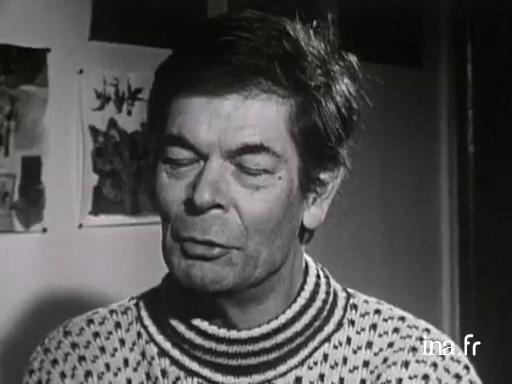Samuel Beckett by Roger Blin

Information
Roger Blin tells of how he met Samuel Beckett, and the numerous difficulties that he had to overcome to put on the piece Waiting for Godot, which finally went on show at the Babylon Theatre in 1953 thanks to the support of Jean-Marie Serreau and Georges Neveux.
Context
Samuel Beckett, an Irish writer born in 1906, left his native country very early on to settle in France. An English lecturer at the Ecole Normale Supérieure, he mingled with Parisian literary circles and met, amongst other people, James Joyce. Between 1951 and 1953, he published three major novels, written in French, Molloy, Malone Dies and The Unnameable.
However, it was thanks to theatre that he gained fame, first through the 1953 play Waiting for Godot and then with his other plays, including Endgame (1957) and Happy Days (1963). In 1969, he received the Nobel Prize in Literature, which he considered to be a "catastrophe", because he firmly refused the adulation that surrounded his creations and he hated society gossip columns.
His works claimed to represent the Theatre of the Absurd, a literary movement whose birth he shared with Ionesco. Waiting for Godot, a dialogue between two tramps, Vladimir and Estragon waiting for Godot - who never shows up - symbolised a crisis of words, combining tragedy and comedy, similar to "Pensées de Pascal as played by the Fratellini brothers", as Anouilh would say. Beckett died in 1989, and was buried in Paris's Montparnasse cemetery.




